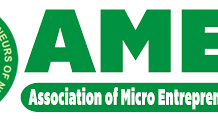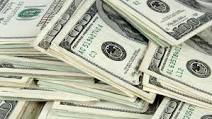One of the amazing drink combinations that people explore in bars is gin and energy drink. But all of that could change because the price of those two items may soon go up by 100%.
The situation is not pleasant to the Nigeria Employers’ Consultative Association (NECA).
The association is not the first to raise concerns about the new importation tariff which is contained in the newly introduced Fiscal Policy Measures and Tariff Amendment for 2023.
This Tariff Amendment for 2023, will take effect from June 1, 2023.
It will increase cost of importation for some alcoholic drinks and some other imported products like energy drink.
However, there is a deluge of backlashes following this position of the Federal Government.
The Muhammadu Buhari’s government had increased excise duty rates for alcoholic beverages, tobacco, wines and spirits.
The associations most affected said that the government jettisoned it’s agreement with Manufacturers Association of Nigeria (MAN) to introduce a new Fiscal Policy.
After evaluating the decision of the government, NECA condemned it.
Read Also: CBN moves to revamp Nigeria’s textile industry
The Director-General of NECA, Adewale-Smatt Oyerinde, is of the opinion that the government’s new Fiscal Policy Measures would largely affect manufacturers and also disrupt the Organised Private Sector’s value-chain.”
Addressing journalists in Lagos over the weekend, Oyerinde gave insights into Organised Businesses’ concerns.
He said: “While we understand that government is facing revenue challenge, the proposed increases will naturally spike the cost of production and reduce the competitiveness of Nigerian manufacturers in both local and international markets.
“With recent reports of unemployment rate hovering over 40%, the Nigerian economy will be further hard-pressed to withstand the likely loss of jobs that follow these increases.”
NECA Worried Over Policy Inconsistencies
Expressing concern about the policy inconsistencies of recent years, the NECA Director-General said: “It is no secret that Foreign Direct Investment (FDI) to Nigeria has continued to slump as the country recorded only $1.06 billion in capital importation in the fourth quarter (Q4) of 2022.
“Our total capital importation for the 2022 fiscal year is $5.33 billion, the lowest since 2017.
“A major factor is government’s seeming policy inconsistencies, which makes planning difficult.
Consequences For Implementing The New Fiscal Policy
“Beyond these consequences, the proposed increase, if implemented could aggravate smuggling, stifle growth of businesses in the sector.
You May Also Read: Bottled Water Prices To Increase As Inflation Hits Manufacturers
“It would most certainly promote the production of fake products, reduce the purchasing power of Nigerians and ultimately reduce government’s projected revenue across board”.
Therefore, the NECA D.G. urged the Federal Government to suspend the implementation of the newly introduced Fiscal Policy Measure and maintain status quo of no excise increase.
He demanded that the government should, as a matter urgency and national importance, suspend the implementation of the Fiscal Policy Measure and Tariff Amendment as currently proposed.
He wants the government to revert to the 2022 Fiscal Policy Measure roadmap, built to expire in 2024, while extensive consultation with Organised Businesses is stepped up.
Nigeria Employers’ Consultative Association (NECA) is the umbrella organization of employers in the Organised Private Sector of Nigeria.
It was formed in 1957 to provide the forum for the Government to consult with private sector employers on socio-economic and labour policy issues.






